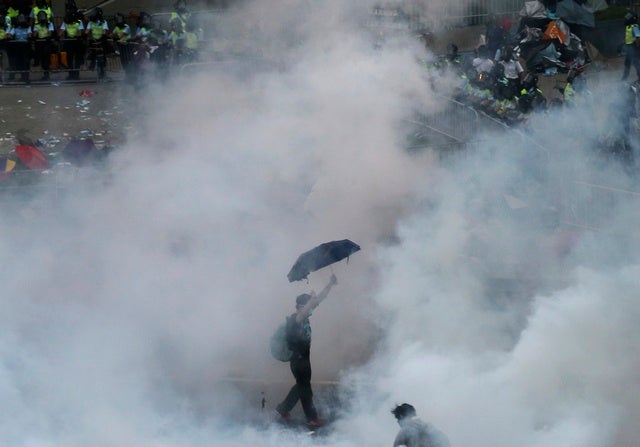A political earthquake is underway now in Hong Kong. On the streets of Central over the last two days, the tectonic plate of pro-democracy protests has ground up against the plate of police in riot gear, rupturing what had been an uneasy calm in the wake of Beijing making clear its disdain for its treaty promise that Hong Kong would have a “high degree of autonomy.”
Some of the images of large numbers of students, assembled calmly, arguing for the merits of democracy and transparency, expressing fears of corruption and loss of political rights have been eerily reminiscent of Beijing in the spring 1989. But the hope in Hong Kong has been that a very different outcome can be accomplished: quite simply, to allow people in Hong Kong to retain control over most decisions affecting the territory.
The proximate struggle now is for popular nomination for Hong Kong’s highest position, which Beijing has resisted because democrats and populists critical of the central government have always been among the most popular political figures in Hong Kong. Some protestors are now demanding the immediate resignation of Hong Kong Chief Executive CY Leung; others are sticking with their original demand for reform of the electoral and political systems.
But the jarring photos of police using tear gas and pepper spray on protestors, as well as the fact that Joshua Wong, a 17-year-old democracy supporter, has now been held by police for two days, suggest that authorities’ responses in the coming days and their larger consequences are far from clear. It is uncertain precisely what has been explicitly dictated by Beijing, but it is difficult to imagine mainland authorities giving in to this kind of public pressure.
They may now find themselves wishing they had accepted the prospect of a pro-democracy chief executive in Hong Kong as the lesser of two evils, but now the stakes are that much higher: is Beijing ready to let people across China see that large-scale demonstrations will elicit key political concessions? This seems inconceivable.
The tectonic plates aren’t done shifting yet, and protestors remain on the streets. Much in the longer-term will depend on police exercising restraint in the use of force, and refraining from detaining demonstrators who pose no real threat to public order. But even if that is achieved, the aftershocks are likely to hit—wave on wave, in Hong Kong and the mainland and beyond—for a long time to come.

A protester walks in tear gas fired by riot policemen. © 2014 Reuters







